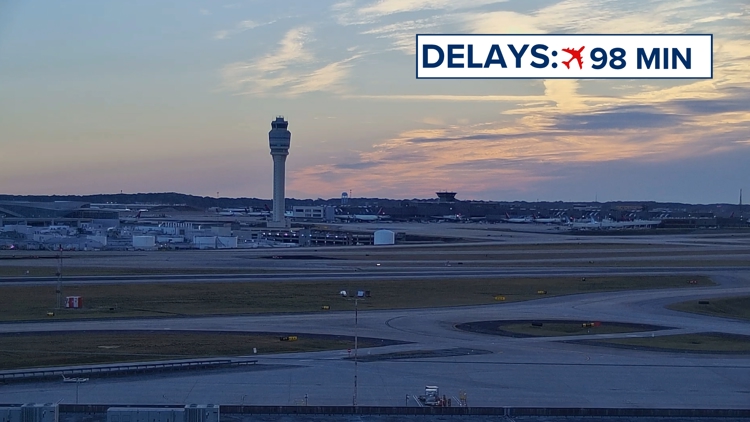
Flight Delays at the World's Busiest Airport Reach Unprecedented Levels
Flights at the world’s busiest airport are facing significant disruptions, with delays stretching up to 98 minutes, according to recent reports. The Federal Aviation Administration (FAA) has confirmed that these delays are largely attributed to staffing shortages at major air traffic control facilities. Nearly half of these critical facilities are currently operating with reduced personnel, leading to a cascade of issues that affect flight schedules and passenger experiences.
The situation is further exacerbated by the ongoing government shutdown, which has now entered its 32nd day. This prolonged period of uncertainty has created additional challenges for airport operations, as many staff members rely on federal funding and support. The lack of resources and personnel has made it difficult for airports to maintain their usual level of service, contributing to the growing list of flight delays.
Hartsfield-Jackson Atlanta International Airport, which consistently ranks as the world’s busiest airport, has been particularly affected. Despite efforts to reach out to airport leaders for clarification on the root causes of the delays, no official response has been received. This lack of communication has left travelers and industry experts concerned about the stability of the airport’s operations.
A recent image captured from a tower camera at the airport on Saturday evening revealed an unusual sight: no airplanes on the runway during a time when flights typically operate frequently. This visual representation of the current situation highlights the extent of the disruption and raises questions about how long these delays might continue.
According to 11Alive meteorologist Danielle Moss, the issue could worsen if flight crews begin to experience timing out due to strict regulations on pilot working hours. Pilots are limited to a specific number of hours per shift, and if delays persist, this could lead to more cancellations or further delays as airlines struggle to manage their schedules.
Impact on Travelers and Airlines
The extended delays have had a ripple effect across the travel industry. Passengers are facing longer wait times, missed connections, and increased stress as they navigate the disrupted schedule. Airlines are also under pressure to manage their operations effectively while maintaining customer satisfaction.
In addition to the immediate inconvenience, the delays may also impact the broader economy. Airports like Hartsfield-Jackson play a crucial role in regional and national commerce, and any prolonged disruption can have far-reaching consequences. Businesses that rely on air travel for meetings, deliveries, or employee travel may face unexpected challenges.
Possible Solutions and Next Steps
Addressing the staffing shortages is a key priority for resolving the current crisis. Efforts to recruit and retain qualified air traffic controllers are essential, but they require time and resources that may not be immediately available. In the short term, airports and airlines may need to implement alternative strategies to manage the backlog of flights and reduce the impact on passengers.
Improving communication between airport authorities, the FAA, and the public is also critical. Clear and timely updates can help travelers plan their trips more effectively and reduce frustration caused by uncertainty.
As the government shutdown continues, the situation remains fluid. It is unclear how long the delays will last or what steps will be taken to resolve the underlying issues. For now, travelers are advised to stay informed, check flight status regularly, and remain flexible with their travel plans.

Post a Comment